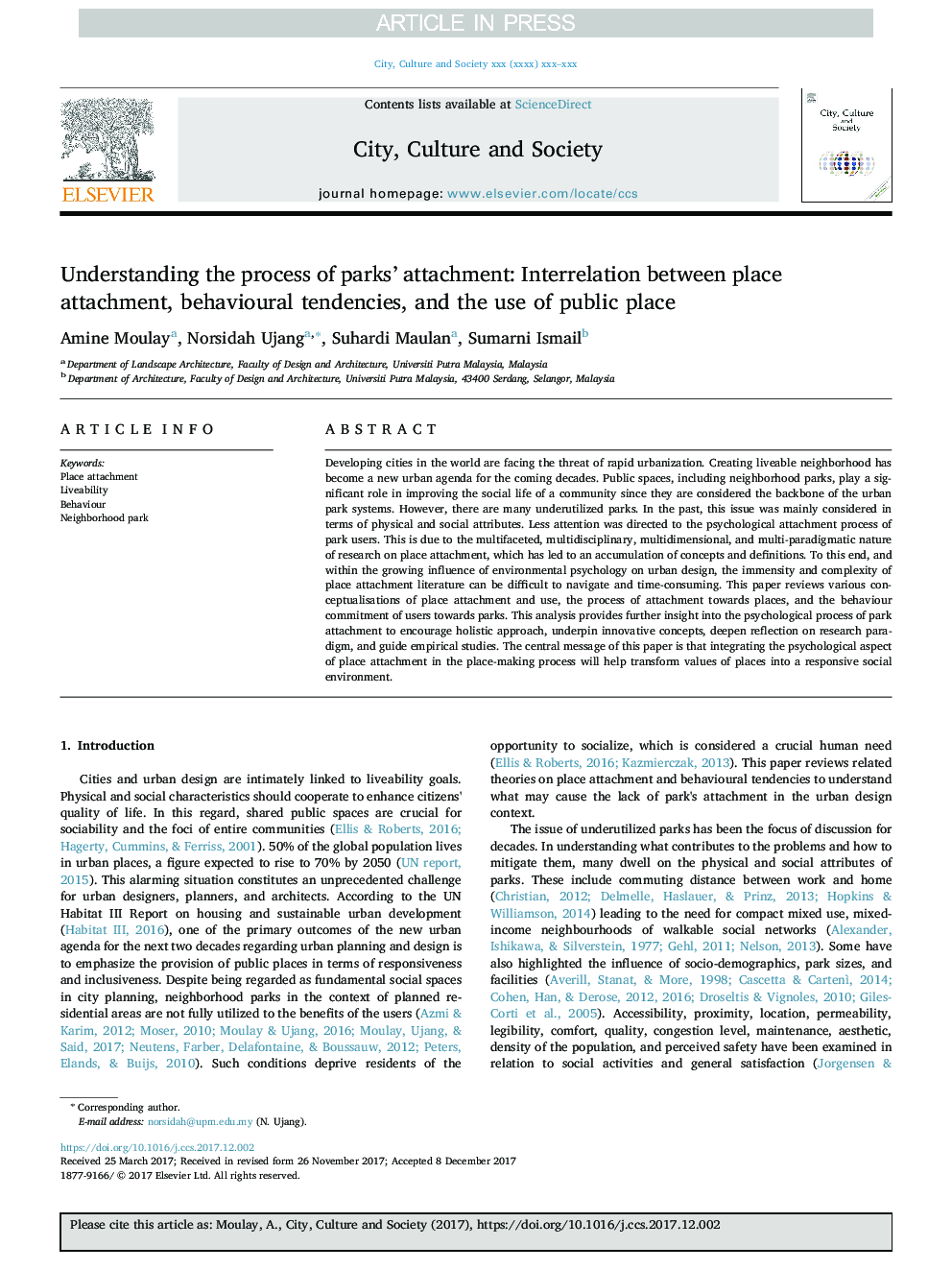| Article ID | Journal | Published Year | Pages | File Type |
|---|---|---|---|---|
| 8960802 | City, Culture and Society | 2018 | 9 Pages |
Abstract
Developing cities in the world are facing the threat of rapid urbanization. Creating liveable neighborhood has become a new urban agenda for the coming decades. Public spaces, including neighborhood parks, play a significant role in improving the social life of a community since they are considered the backbone of the urban park systems. However, there are many underutilized parks. In the past, this issue was mainly considered in terms of physical and social attributes. Less attention was directed to the psychological attachment process of park users. This is due to the multifaceted, multidisciplinary, multidimensional, and multi-paradigmatic nature of research on place attachment, which has led to an accumulation of concepts and definitions. To this end, and within the growing influence of environmental psychology on urban design, the immensity and complexity of place attachment literature can be difficult to navigate and time-consuming. This paper reviews various conceptualisations of place attachment and use, the process of attachment towards places, and the behaviour commitment of users towards parks. This analysis provides further insight into the psychological process of park attachment to encourage holistic approach, underpin innovative concepts, deepen reflection on research paradigm, and guide empirical studies. The central message of this paper is that integrating the psychological aspect of place attachment in the place-making process will help transform values of places into a responsive social environment.
Keywords
Related Topics
Social Sciences and Humanities
Economics, Econometrics and Finance
Economics and Econometrics
Authors
Amine Moulay, Norsidah Ujang, Suhardi Maulan, Sumarni Ismail,
